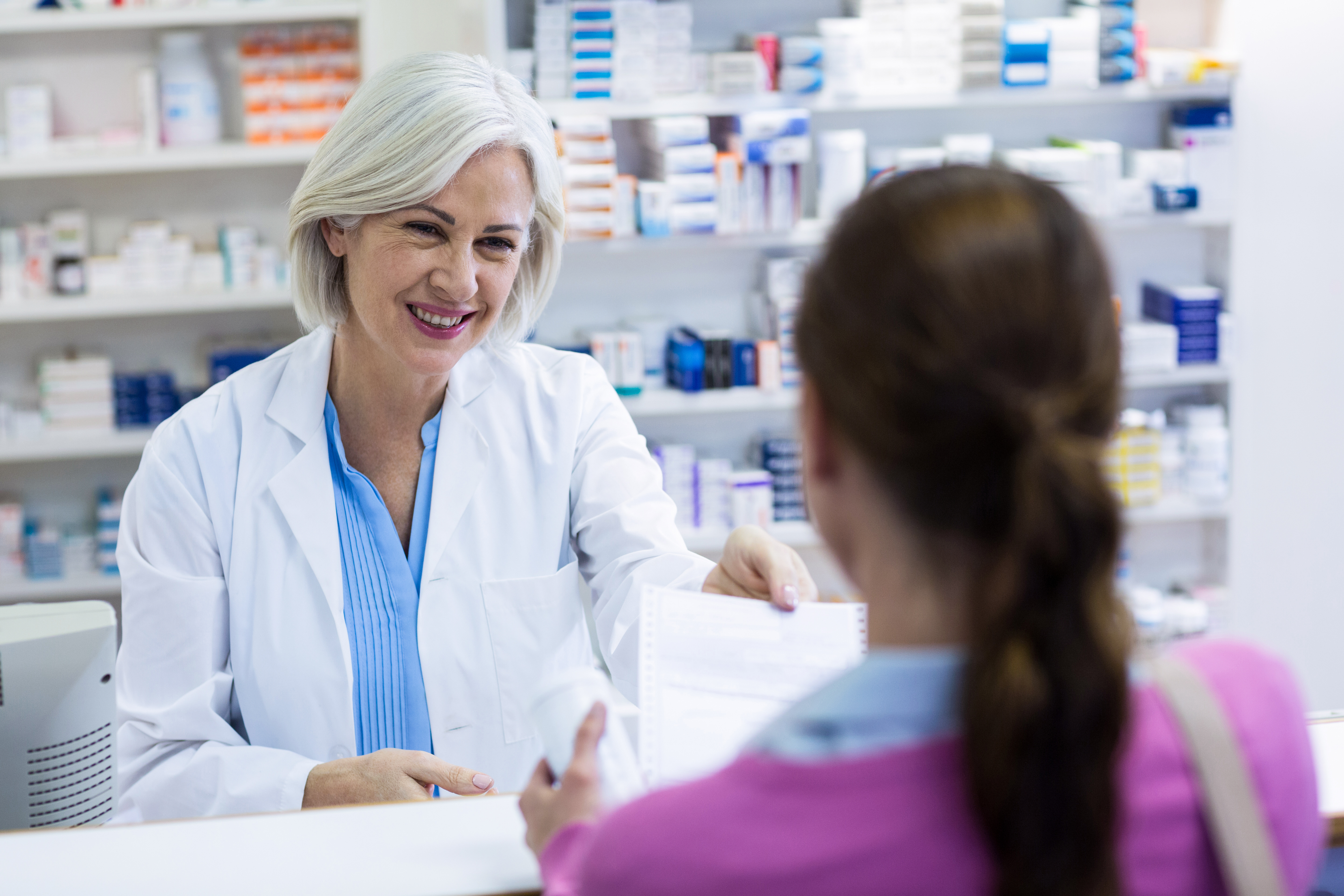Did you know that your pharmacy can supply more than just medication? There are over 5,000 pharmacies conveniently located across Australia which are often open extended hours so you can get general medication and health advice for you and your loved ones.
When you can’t get in to see your GP or if you’re unsure whether you require a visit to the GP, why not pop into your local pharmacy and have a chat with the pharmacist? The following list is some of the things your pharmacist can help you with:
- Medical certificates
If you are ill or injured and cannot work, you can call into your local pharmacy and ask for a medical certificate. Pharmacists can issue certificates for certain conditions, such as cold & flu, gastrointestinal complaints, migraines or minor injuries. Keep in mind, the pharmacist may still refer you to a GP if you require further medical attention. Most pharmacies won’t require an appointment, and there is usually a fee associated, but it may be less expensive and more convenient than a visit to your GP.
- Vaccination services
Some pharmacies now offer vaccination services, most commonly for the flu vaccine (generally available from March/April). An appointment may be required and a fee is usually payable for this service. Pharmacies with long opening hours could provide this service for you after your GP has closed, a useful option for people who work full time.
- Blood pressure, blood sugar, cholesterol and other minor health checks
Many pharmacists will check your blood pressure without an appointment. They can record each blood pressure reading for you so, at the next visit to your GP, you can provide an accurate history of your health. Some pharmacists will also carry out blood sugar and cholesterol checks to help you manage your condition or to identify if you are at risk of diabetes or high cholesterol. This may be in conjunction with a healthy living or weight loss program, where you can make an appointment to see a qualified staff member for advice to support you in maintaining a healthy lifestyle.
- Administration of basic first aid
In addition to selling first aid products, a pharmacist is also able to administer basic first aid. Wound dressings, sports injuries, and application of eye patches are some of the things your local pharmacist can assist you with. If you need help applying medication patches, instilling eye or ear drops, you can also ask your pharmacist.
- Short-term supply of prescriptions medications
No repeats left and you’ve run out of your regular medication? Your pharmacist may be able to help you with a short-term supply whilst you wait to see a GP. There are legal restrictions on this supply - it doesn’t apply to all medications and supply is given at the pharmacist’s discretion, but it is worth asking about if you’re stuck without your regular medication.
- Eye drops for minor eye infections
Pharmacists can provide antibiotic eye drops over the counter for minor eye infections. The pharmacist will ask you questions to determine if the treatment is suitable for your condition, or if you need to visit the GP. If you have a child under the age of 2 who has a suspected eye infection, it is recommended you visit the GP first and foremost.
- Supply of the Emergency Contraception Pill (also known as the Morning After Pill)
As with antibiotic eye drops, pharmacists can provide emergency contraception to females when they meet certain criteria for supply. There are strict guidelines a pharmacist must follow when assessing whether the supply is appropriate, and referral to a GP may be necessary for some instances.
- General health advice about a medical complaint
Pharmacists are highly trained health professionals who are easily accessible without an appointment. They are an excellent source of information when it comes to general health, medications, medical conditions and baby or toddler development. Pharmacists are also often aware of community health resources you can benefit from such as mental health support groups, drug and alcohol support groups, community support for the aging population and more. Building a relationship with your local pharmacist means you’ll always feel supported and confident about your health and well-being.

No Comments Yet
Let us know what you think